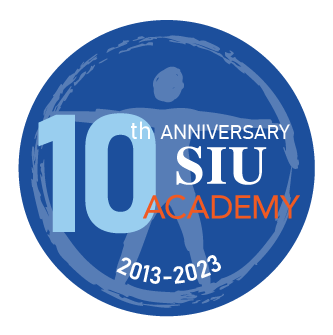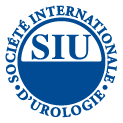Follicle Stimulating Hormone Levels During Androgen Deprivation Therapy Are Not Associated With Survival or Development of Castration-Resistant Prostate Cancer
Abstract
Background: Follicle-stimulating hormone (FSH) dysregulation plays a potential role in prostate cancer progression.
The objective of this study was to evaluate whether higher FSH levels during androgen deprivation therapy (ADT) for
recurrent prostate cancer could predict the development of castration-resistant prostate cancer (CRPC), prostate
cancer-specific survival (CSS), and overall survival (OS).
Methods: Serum FSH levels were measured in cryopreserved samples of the continuous ADT arm of the PR.7 trial,
supplemented with analogous samples from a large contemporaneous biobank. Univariate and multivariate analyses
assessed the relationship between FSH tertiles and time to CRPC, as well as CSS, and OS.
Results: A total of 172 patients were included in our analysis. Of these, 54 patients (31%) developed CRPC during
the 9-year follow-up. Median FSH for the tertiles was 4.35, 6.13, and 11.32 mIU/mL. FSH tertiles were not significantly
associated with the time to CRPC, or with CSS or OS. FSH levels were not a significant prognostic factor for these
oncologic outcomes.
Conclusion: As previously reported, the use of gonadotropin-releasing hormone (GnRH) antagonists for ADT
has significantly more suppression of FSH levels than GnRH agonists. Our results do not suggest that differences in
circulating FSH 1 year following ADT initiation influence long-term oncologic outcomes or development of CRPC.
The Société International d'Urologie (SIU), which owns and publishes the Société International d'Urologie Journal (SIUJ), does not require authors of papers published in the journal to transfer copyright. Instead, we ask authors to grant an exclusive licence that allows us to publish the article in SIUJ (and any derivative or related products or publications) and that allows us to sub-license such rights and exploit all subsidiary rights.
Authors retain the right to use their own articles for their own non-commercial purposes without seeking explicit permission from SIU.
The SIUJ publication licence expressly defines “non-commercial” as “not primarily intended for or directed towards commercial advantage or monetary compensation.” Although no activity is completely disconnected from commercial activity, the following are generally considered to be non-commercial uses:
- Reproduction of a reasonable number (no more than 100) of print copies of the published paper for personal use (e.g., sharing with colleagues, including in grant applications).
- Posting a copy of the published version of the paper on the author’s own or their institution’s website. The article must be accompanied by this statement: ‘This article has been published in the SIUJ: [full citation; link]’.
- Inclusion of the paper in a course pack, with a maximum of 100 copies to be used in the author’s institution. The copies must include the following acknowledgement: ‘This article has been published in the SIUJ: [full citation; link].’
As the distinction between commercial and non-commercial is not always clear, authors are strongly advised to seek permission from SIU for any use that may be considered to have a commercial aspect.
We ask the corresponding author to read the terms of the licence and then to grant this exclusive licence on behalf of all authors by indicating agreement to the following statement:
The corresponding author has the right to grant on behalf of all authors and does grant on behalf of all authors, an exclusive licence on a worldwide basis to the SIU and its licensees to permit this article (if accepted) to be published in the SIUJ and any other SIU products and publications and to exploit all subsidiary rights, as set out in our licence agreement.
Review and Decision
Most submissions will be reviewed by a senior editor within 2 weeks. Many manuscripts will be rejected at this point for a variety of reasons, including subject matter outside the scope of the SIUJ, flawed design, discredited or outdated methodology, poor organization or presentation, failure to conform to ethical requirements, and apparent plagiarism.The remaining manuscripts will be sent for peer review. The SIUJ uses a single-blind process: reviewers know the identity of the authors, but the authors are not told who has reviewed their manuscript, and SIUJ ensures that potentially identifying information is removed from comments sent to them. Reviewers are asked to make their recommendations within 10 days, after which a senior/specialist editor will consider their comments and recommend provisional acceptance dependent on satisfactory revision, acceptance without revision, or rejection. Authors should receive a final decision within 4 to 6 weeks of submission.











